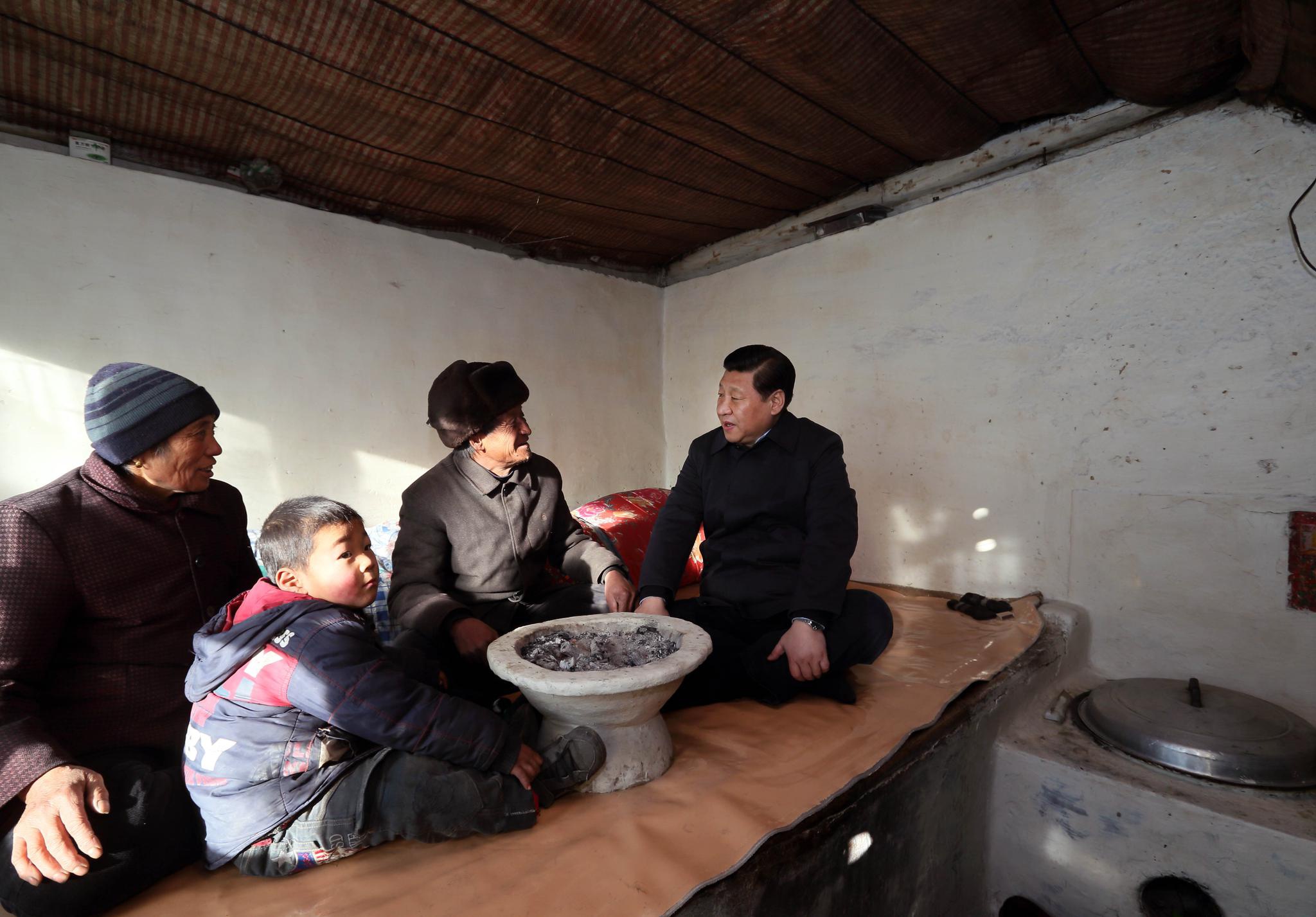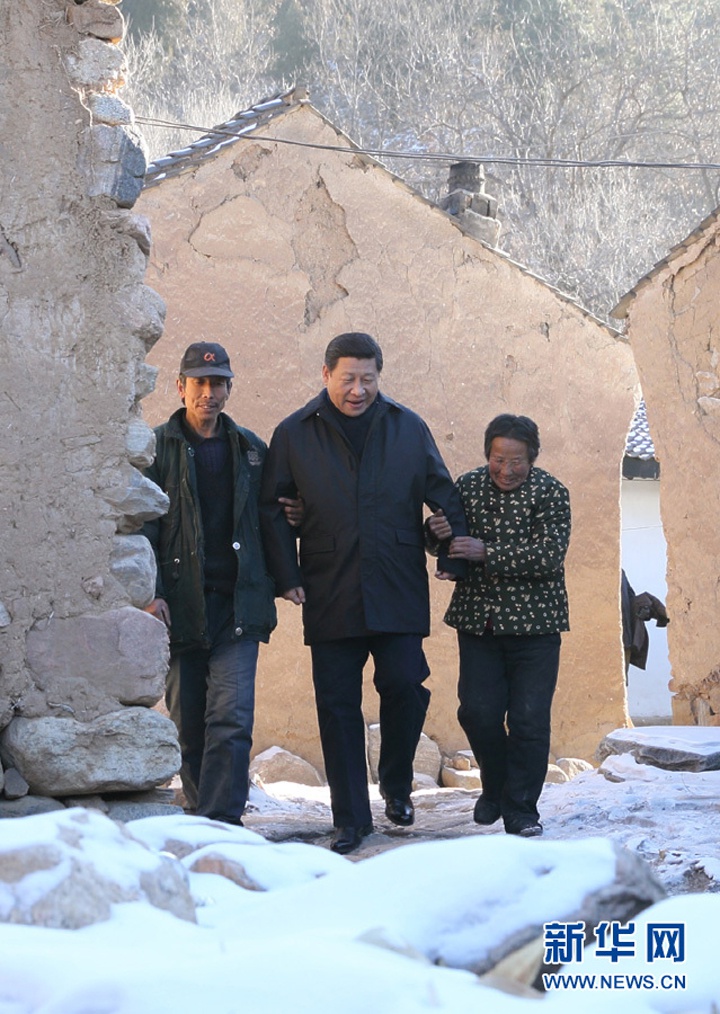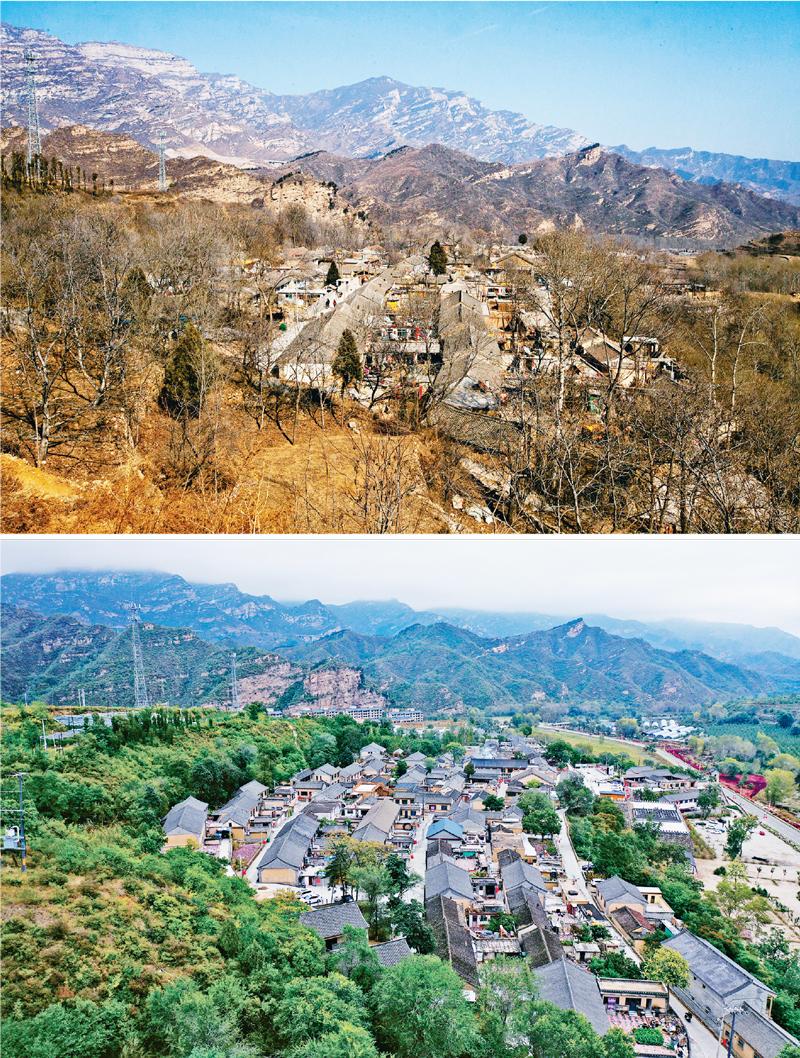Editor's note: This is a four-episode series that dives into the four periods that were turning points in China's modern history: the New Democratic Revolution from 1919 to 1949; the Socialist Revolution in the 1950s; Reform and Opening-Up since 1978 and the New Era of Socialism with Chinese Characteristics post 2012. The fourth and last episode focuses on New Era of Socialism with Chinese Characteristics, during which China achieved its goal of building a moderately prosperous society in all respects. You may find the first, second, and third episode here.
December 30, 2012. It's a regular winter's day in Luotuowan, a remote village deep in the Taihang Mountains in Fuping County, north China's Hebei Province. An unusual guest arrives at the Tang family's shack. Xi Jinping, the newly elected general secretary of the Communist Party of China (CPC) Central Committee, makes his visit after a 300-kilometer ride from Beijing. Sitting down with the villagers on their kang – a traditional multi-purpose heated platform widely used in China's cold north – he chats with them about their everyday life and the difficulties they face. Xi came here with one goal: to see the real living conditions of the poor with his own eyes.

Xi Jinping visits the family of Tang Rongbin in Luotuowan Village, Fuping County, north China's Hebei Province, December 30, 2012. /Xinhua
Xi Jinping visits the family of Tang Rongbin in Luotuowan Village, Fuping County, north China's Hebei Province, December 30, 2012. /Xinhua
Luotuowan is classified as a village of extreme poverty, with an annual per capita income of 900 yuan ($142.60). Barren lands, rough and unpaved roads explain why it is a secluded village in the already poor Fuping County.
Xi's special visit took place in the context of the 18th CPC National Congress, which put forward the goal of reaching "xiaokang" – a Confucian concept meaning "moderate prosperity" – in all respects of the society.
"It is the essential requirement of socialism to eradicate poverty, improve the people's livelihood and achieve common prosperity. We should pay close attention to people in straitened circumstances, and extend care to them with respect and love. We should do our best to solve their problems and keep their needs and sufferings in mind, and bring the solicitude and concern of the Party and the government to the people in the impoverished areas," Xi said in a speech during his visit to Fuping County.
"With regard to completing the building of a moderately prosperous society in all respects, the hardest and most arduous tasks lie in the rural areas and the poverty-stricken regions in particular. We cannot say we have realized a moderately prosperous society if the rural areas, especially the backward parts of the countryside, are left behind," he continued.

Xi Jinping walks with two villagers in Luotuowan. /Xinhua
Xi Jinping walks with two villagers in Luotuowan. /Xinhua
China has been plagued by poverty since the late Qing Dynasty. But in the last 70 years, significant progress has been made to solve this long-standing problem. Since the founding of the People's Republic of China (PRC) in 1949, over 700 million Chinese people have been lifted out of poverty. But due to the country's large population, by the end of 2012, nearly 122 million people were still impoverished, 9 percent of the country's entire population.
In 2013, Xi proposed the concept of "targeted poverty alleviation," which called for taking targeted measures to precisely identify, help and manage the poverty-stricken villages and households. In simpler words, whoever is the poorest gets the help first. Customized solutions were made for each specific predicament of each target.
The strategy soon gained traction throughout China. A total of 255,000 resident work teams were dispatched across the country, and more than 2.9 million Party officials were appointed in administrative positions in the primarily targeted villages.
Xi also asked for the fulfillment of the "two assurances" – food and clothing – and the "three guarantees" – compulsory education, basic medical services and housing. To him, "education is the fundamental plan of poverty alleviation." Additionally, the eastern regions, particularly the coastline cities, which are much more developed from reform and opening-up, should provide assistance to the western regions. The first that got rich should help the last, in order to ultimately achieve the goal of prosperity for all.
Living mainly on growing corn and potatoes, Luotuowan had struggled in the past to barely make ends meet due to its harsh environment. Under the guidance of targeted poverty alleviation, the village carried out comprehensive industrial planning and land-use planning, putting every hectare of land to its best suited use. For example, 125 greenhouses for mushrooms were built, so were 50.5 hectares of apple, cherry and apricot orchards, and 13.3 hectares of Chinese herbal medicines such as bupleurum and peony.
In 2018, the per capita income of Luotuowan reached 11,239 yuan ($1,695.20), an 11-fold increase over the previous six years. The proportion of people under the poverty line dropped to 0.5 percent. Now, color TVs, refrigerators and washing machines are regular items in each household, and a quarter of all families in the village own a car.

A village in Fuping County in 2013 and 2019. /Xinhua
A village in Fuping County in 2013 and 2019. /Xinhua
"We have realized the first centenary goal of building a moderately prosperous society in all respects. This means that we have brought about a historic resolution to the problem of absolute poverty in China, and we are now marching in confident strides toward the second centenary goal of building China into a great modern socialist country in all respects," Xi announced at the celebration of the Communist Party of China's (CPC) 100th anniversary, referring to the Two Centenaries – the centenary of the CPC and the centenary of the PRC.
"Looking back on the path we have traveled and forward to the journey that lies ahead, it is certain that with the firm leadership of the Party and the great unity of the Chinese people of all ethnic groups, we will achieve the goal of building a great modern socialist country in all respects and fulfill the Chinese Dream of national rejuvenation."

